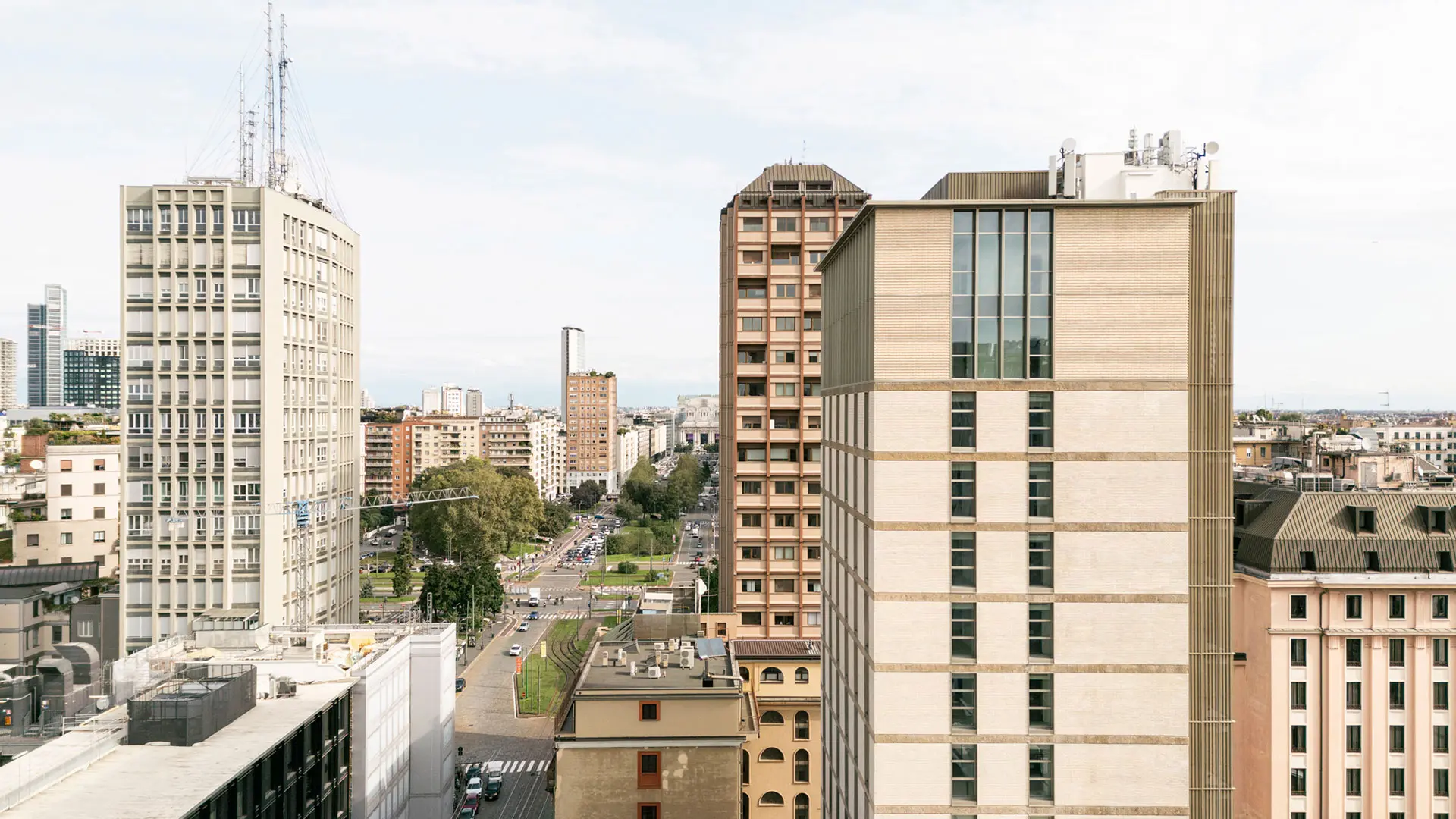In partnership with MiCodmc, a selection of establishments ripe for discovery during the 63rd edition of the Salone del Mobile.Milano, from 8th to 13th April
Claudio Feltrin: “Sustainability? Synonymous with a new industrial model”

President of FederlegnoArredo Claudio Feltrin discusses the Federation’s code of conduct on guidelines for tackling ecological transition: “We now need concrete facts, to build credibility.” Because this transformation is the only way to keep a foothold in the market.
Preserving the places we live in, curbing the exploitation of unique and finite resources, combating climate-altering emissions with increasingly effective processes, prolonging the life of products by establishing a recycle and reuse system. These are some of the objectives in FederlegnoArredo’s Sustainability at the Centre code of conduct – a first official step towards tackling the ecological transition concretely. The actions to be undertaken and the progress indicators that will monitor the process will be presented in early 2022. Claudio Feltrin, President of FederlegnoArredo, underscores the pragmatic approach to the operation.
In 2017-18, when we started thinking about issues that might affect the future and the development of our companies, sustainability leapt out as a crucial point, despite the fact that we were unaware that it was quite so urgent until Covid came along. In 2019 sustainability again came to the fore, thanks to the youth movements, thanks to Greta Thunberg – it’s become the banner of the upcoming generations, who have underscored and subscribed to what is their overriding concern, which is the state of the planet they will inherit from previous generations, the result of a development model based on consumerism that takes no account of the fact that raw materials are exhaustible. Then there is the amazingly positive action taken by Europe in launching the Green Deal in the same year. In 2019, FederlegnoArredo set up a task force to work on these themes. To start with, we set about identifying concrete, operational actions that needed to be taken. In 2020 we finished mapping the activities of the Federation, which encompasses 11 different associations. We are lucky to have an extremely long production chain, from tree to finished product. This means we can have a more incisive effect on those who perhaps control only one segment. Then we drew up an initial operational plan and carried out a dedicated Survey of 250 companies, collecting statistical data and ideas. This snapshot informed the code of conduct, which pinpoints the broad actions that should chart the process for the strategic plan due for presentation next year.
We are starting by raising awareness. Covid taught us that sustainability is an urgent issue. It’s also a factor in the survival of our companies, which are focused on doing things well, on producing attractive, high-quality design. Sustainability doesn’t mean making objects entirely from recyclable and recycled materials – unquestionably fundamental principles – it means overhauling the processes, i.e. the industrial models of our companies. It means having facilities that can cope with these new flows, by cutting energy waste, for example. That’s why, as a Federation, we want to start by building awareness, to avoid falling into the greenwashing trap, in perfect consumer style. We are keenly aware that sustainability is an irreversible process, one that could strengthen our market competitivity. It means having the right product, that matches public expectations and at an affordable price. We need to be able to manage the transition from a financial point of view, too, without being blinded by false myths.
We’re considering supporting our companies – even the smaller ones, which have fewer resources and less ability to work out plans for transformation – to prepare them for this huge change and help them access the resources put in place by Europe. The Green Deal only gave us the IA, now they’ve added the RRP.
Sustainability is an opportunity. Companies who fail to embrace it stand to be marginalised on the market. Transparency comes in the form of certification, for example. It is an expensive process, but not having it precludes access to the more interesting markets. We have a top-quality product and we supply a sophisticated, wealthy market, evolved countries that demand certifications and guarantees. Not responding to these demands condemns us to a late rush to change. This is why we need to embark on this process without delay. It will not be swift, but we are setting out our objectives step by step. Now is the time to start disputing the principles of the consumerism we’ve previously enjoyed – we had access to commodities that were not available to the generation before us. There was an account to be settled. Now the time has come. We need to work out how to settle it without ruining ourselves. We’ve been given a great opportunity: crisis means change. We need to channel this into a sustainable model, and so the indicators that we will use to assess this transformation must be credible, as part of a tough but achievable process. The code of conduct summarises the guidelines, now it’s time for concrete facts. Because with concreteness comes credibility.
30% of businesses have someone in charge of sustainability. Only 30% of these people do so exclusively. One of our objectives is for every company to have at least one dedicated person, not a stumbling block. It’s a cultural shift. Like when we thought English wasn’t essential. Then we realised just how fundamental it was. We live on a small planet in proportion to the consumption we support. Taking this on board means consciously being more respectful of the planet. We are part of a community and have a duty to look after it and to do our bit. By staying in the market. So that the consumer can ask us to be accountable for the way we produce. Sustainability is an opportunity and a duty – it’s a way of running modern businesses. Responding to the concerns of every entrepreneur. Which does mean having to take work home, but it especially means being able to guarantee the survival of one’s own company.
We will have better thought-out furnishings; championing not just looks but other aspects. For example, knowing that wood comes from certified forests or that fabrics are recycled. I think we will increasingly see fewer virgin materials. What’s more, I would like to see adjustable products, so that if a piece breaks the company will guarantee its repair. I would like to be able to buy a piece of furniture and then, when I no longer want it, to be able to put it back into circulation, sanitised, for people who may only be able to afford to buy second-hand. Putting the concept of circularity into practice.


 Markets
Markets








